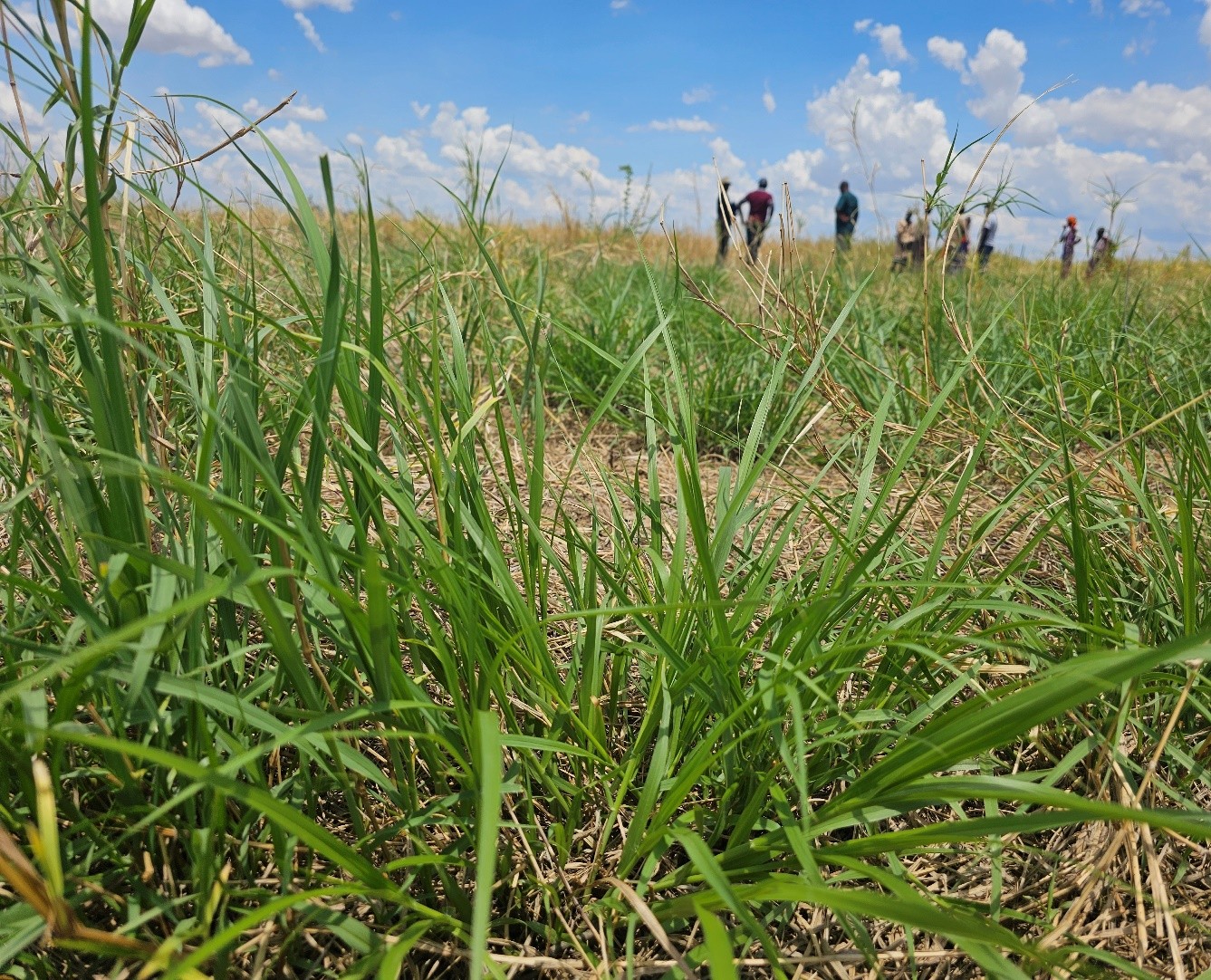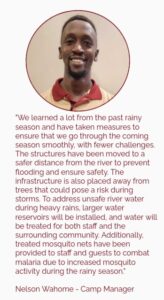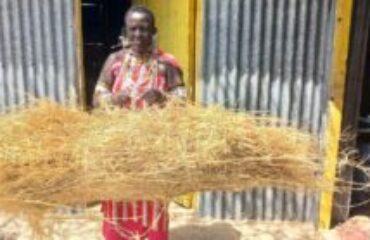
In staying prepared we are working with our communities to take advantage of the water harvesting and retention mechanisms that we have put in place. These include but not limited to water pans, ‘earth smiles’, water retention ditches and stone lines that will ensure reliable water supply for people, livestock and wildlife even after the rainy season ends. These techniques also provide effective solutions to reduce surface runoff and soil erosion, improve land productivity and build resilience to climate change.

The rains offer a mixed bag of blessings for our rangeland’s restoration work in our established Grass Seed Banks and Olopololis which are vital spaces for grass rejuvenation, tree growth, and pasture protection. We are happy to report that these efforts are yielding successful results, with last year’s harvest providing income-generating opportunities for women, enhancing family well-being and food security.
Despite these strides, some areas in our landscape remain vulnerable to the negative effects of heavy rains. To mitigate these, we are sharing early warnings through our rangelands and ecology programs to help our communities prepare. With these efforts we hope to minimize potential challenges. We cannot do this alone. Climate change is becoming an urgent challenge that affects us all. It is not just about the environment, it is about the resources of the South Rift and the pastoral communities who rely on it. We call on our partners and friends to join us on this journey. Let’s stay vigilant and contribute in whatever ways we can—whether it’s through small actions, ideas, or donations – every effort count.




